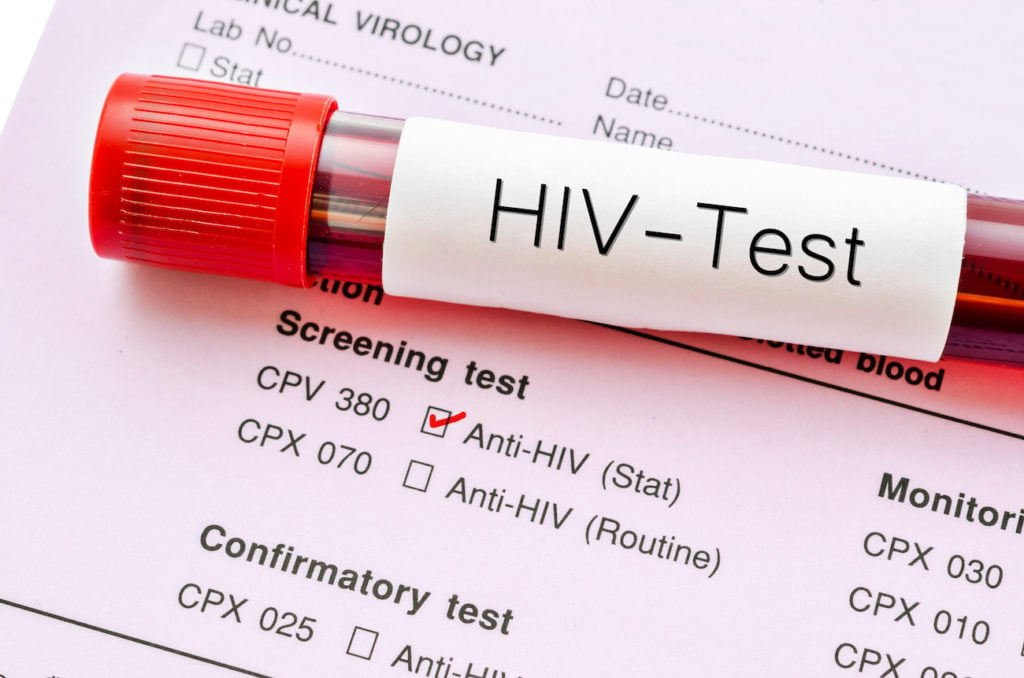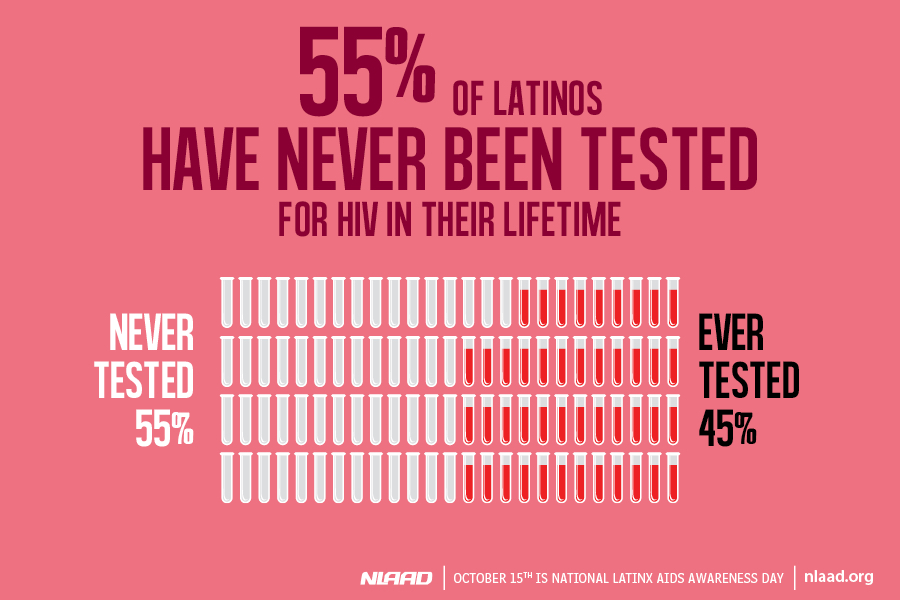
Only 55% Of Latinos have been tested for HIV. HIV testing is the only way to know someone is HIV positive. There is no look, there is no one symptom that tells us if someone is HIV positive. Photo: iStock.
This column is part of an on-going health series to offer useful news and tools that will help empower LGBTQ+ readers to make informed choices about their health.
Let’s talk about sex, and how to do it your way and do it right.
Sunday is National Latinx AIDS Awareness Day. Brown and Black folks are disproportionately affected by HIV infection and lack of access to prevention methods.
Men who have sex with men have the highest HIV infection rates, and 1 in 4 Latinx men who have sex with men test positive for HIV.
To honor the National Latinx AIDS Awareness Day, here are six HIV facts to help keep us informed and break the stigma surrounding HIV.

- HIV can only be passed by six bodily fluids: blood, semen, pre-semen, vaginal fluids, anal fluids, and breast milk. It is commonly misunderstood that saliva can transfer the virus, but saliva does not transmit HIV. Also, HIV cannot be spread by hugs or sharing toilet seats. These misconceptions still circulate in our community.
- HIV testing is the only way to know someone is HIV positive. There is no look, there is no one symptom that tells us someone is HIV positive. Though there are symptoms to look out for such as fever, chills, fatigue, ulcers in the mouth, and body rash. But, the most common symptom with any STI is no symptoms at all. This is why routine HIV testing is important. Early detection and treatment of the virus also can help suppress the virus to an undetectable level much faster than without treatment.
- HIV is manageable through medication. An HIV infection can cause stress and anxiety, but it can be managed with routine laboratory testing and medication, meaning people can enjoy a healthy life. These medications can be pills, or monthly injections. All of these elements can help a person reach what is known as an undetectable viral load, which is the goal for doctors treating patients with HIV.
- “Undetectable equals untransmittable.” When a person reaches viral suppression that means the virus is so low in the blood that it cannot be detected by testing. That also means a person cannot transmit the virus through sexual contact, in other words, “undetectable equals untransmittable.” It’s a huge step for HIV prevention. Understanding what it means to be undetectable can help HIV negative individuals break the stigma around HIV that often creates isolation for HIV positive individuals when it comes to dating, romance, and sex.
- PrEP/PEP knowledge is important for everyone regardless of status. PrEP is a prevention medication folks can take before they have sex to be protected from HIV, and PEP is for folks who have or think they have been exposed within the past three days. Knowledge about these medications can help us have better conversations with partners when discussing sexual history before we engage in sex.
- The most important tool to break stigma is knowledge. The more we know the less we shame others, and the better we can protect ourselves. Regardless of our status, it’s important that we get routinely tested, talk with our friends, family, and lovers about behaviors that will help keep us healthy and safe. HIV changes lives, but with support from our community, we can be stronger in the fight against this virus.
If you would like more information on Latinx individuals and HIV, the CDC has an interactive hub with statistics and infographics.
To learn more about National Latinx AIDS Awareness Day, here is a calendar of events to honor the 20th anniversary
Disclaimer: This information is not advice and should not be treated as such. You must not rely on the information from this post or any posts on this site as an alternative to medical advice from your qualified health care provider. If you think you have a medical or psychiatric condition, seek help immediately. You should never delay seeking medical advice, disregard medical advice, or discontinue treatment because of information found on this site/page. You release any and all liability prior to any interaction with this post and by engaging with this post in any way (including viewing, reading, liking, commenting, sharing, saving, or any other interaction).
